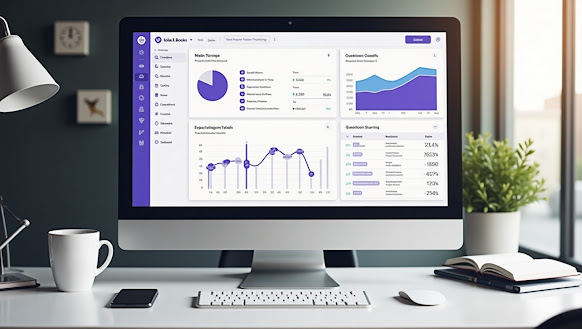Top 5 Reasons Iron and Steel Manufacturers Should Switch to Accounting Software
The iron and steel manufacturing industry is known for its complex operations, fluctuating raw material costs, and the need for precise financial management. As the industry grows and evolves, relying on outdated accounting methods can lead to inefficiencies, errors, and missed opportunities. Here are the top 5 reasons why iron and steel manufacturers should make the switch to accounting software:
1. Improved Job Costing and Profitability
In steel manufacturing, each project involves unique costs—raw materials, labor, and overhead. Tracking these costs manually can be difficult and error-prone. Accounting software enables you to accurately track job costs on a per-project basis. This provides valuable insights into the profitability of each job and helps you make data-driven decisions to optimize operations and improve margins.
2. Streamlined Financial Management
Traditional accounting methods, like spreadsheets and manual bookkeeping, are time-consuming and prone to human error. Accounting software automates key tasks, such as invoicing, payroll, and expense tracking. This not only reduces the workload but also ensures that financial data is accurate and up-to-date, saving you time and effort while improving the overall efficiency of your operations.
3. Real-Time Financial Insights
Having access to real-time financial data is essential for making quick, informed decisions. Accounting software gives steel manufacturers up-to-the-minute visibility into cash flow, expenses, and profits, allowing you to monitor the health of your business at any moment. With accurate financial data at your fingertips, you can quickly adjust budgets, plan for future investments, and avoid costly mistakes.
4. Efficient Inventory Management
Managing raw materials and finished products is a constant challenge in the iron and steel industry. Accounting software often includes integrated inventory management features, allowing you to track stock levels, material usage, and reorder points in real-time. This helps reduce the risk of overstocking, running out of materials, or experiencing production delays—all of which can lead to significant cost savings and improved operational efficiency.
5. Simplified Tax Compliance
The ever-changing landscape of tax regulations can be particularly challenging for steel manufacturers. Accounting software can help ensure tax compliance by automatically calculating taxes based on current laws, generating necessary reports, and providing documentation for filings. This reduces the likelihood of tax errors or penalties and makes the tax filing process smoother and more efficient.
Conclusion
Switching to accounting software can truly transform the way iron and steel manufacturers operate. By automating everyday tasks, enhancing job costing accuracy, and delivering real-time financial insights, this software boosts operational efficiency, minimizes errors, and helps maintain compliance. It's time to embrace the future of financial management—making the switch to accounting software can significantly increase profitability and keep you competitive in the fast-paced steel manufacturing sector.
.jpeg)
Comments
Post a Comment